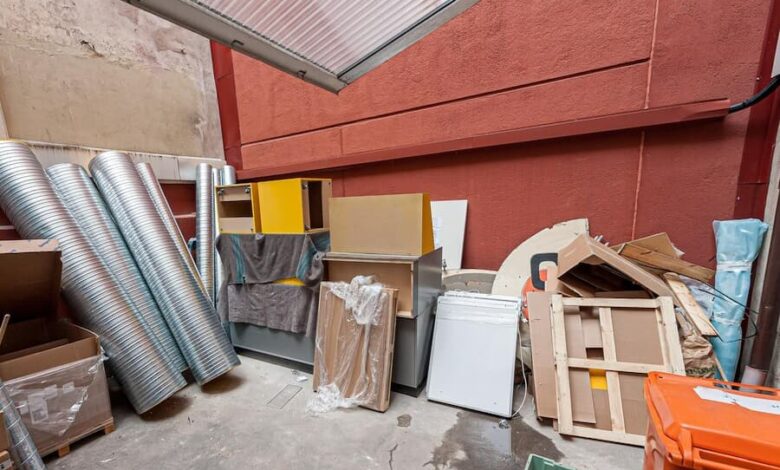How to Manage Waste Responsibly During Home Renovations

Home renovations are generally exciting because you can make your place more comfortable and modify how it looks. The significant amount of waste, including trash from outdated items and packaging from recent sales, is a regrettable drawback. Additionally, it could be difficult to manage, remove, and dispose of trash in London. Don’t worry. After reading this article, you may cut waste when remodelling your home by using sustainable techniques. Find trustworthy and reasonably priced by skip hire Tameside for whatever your waste management requirements. A variety of skip sizes are available to fit every endeavour.
Make a Plan
Planning your garbage management strategy is crucial before you start your restoration job. Assess the project’s scope, calculate the amount of waste you will generate, and choose appropriate disposal techniques. The waste management procedure will run more smoothly and there will be fewer disruptions during the remodelling if careful planning is done beforehand.
Waste Sorting Made Simple
Sorting all of your trash into recyclables from the rest hazardous materials, and ordinary rubbish will make waste management easier. To expedite recycling and guarantee appropriate disposal procedures, use distinct bins or canisters for each type. Your restoration project’s environmental impact can be greatly reduced with this simple method.
Relevant in Kindergarten, Relevant Now: The Three R’s
At a certain point in our lives, most of us will recall hearing the slogan “Reduce, reuse, recycle!” chanted in offices, classrooms, or on television. This has always been and continues to be, a wise practice to follow when doing home renovations. Here’s how to put that old-fashioned maxim into practice right now.
Cut down on waste in advance. When you see firsthand how much waste many contractors accept as part of the cost of doing business, it’s astounding.
Make Sensible Material Purchases
Waste output can be greatly decreased by sourcing items with little packaging or by purchasing in bulk where practical. Choose environmentally friendly and sustainable materials made with ethical production methods. To further encourage ecologically friendly remodelling techniques, think about utilizing conveniently recyclable or reusable components.
Choose Deconstruction over Demolition
Deconstruction is preferable to destruction when eliminating old fixtures or buildings during a house restoration. Deconstruction is the process of carefully disassembling buildings so that components like bricks, tiles, and wood can be salvaged and used again. By reusing these components in your project, this method not only cuts waste but also minimizes your restoration expenses.
Sell Or Donate Unwanted Goods
Before throwing out a previous bathroom suit, consider whether an additional person might desire it. Fixtures, storage units, and equipment can be sold online or donated to a good cause. To help you decrease waste and give it to the community, many charities will pick up large items for free. If you purchase these things, you can save money and reduce trash.
Utilise Remaining Materials
During a renovation, you will have additional bricks, tiles, and wood. Use your imagination rather than throwing them away! The following are some suggestions for recycling surplus materials:
- You may use bricks or scrap wood to make garden planters.
- The remaining tiles can be used to make a mosaic or backsplash.
- Timber offcuts can be used to construct small furniture pieces or storage solutions.
You can save money while also adding a distinctive, personal touch to your house by figuring out how to reuse items.
Select Upgrades That Are Eco-Friendly And Energy-Efficient
Reducing trash during renovations is only one aspect of sustainability; another is making your house more environmentally friendly going forward. Here are some green home enhancement ideas to think about:
- To increase insulation, consider windows that use less energy.
- Choose fixtures that conserve water for your cooking areas and bathrooms.
- Create renewable electricity for your house using solar panels.
- Select environmentally friendly insulation composed of sustainable or recycled materials.
These improvements benefit homeowners by lowering energy costs and benefiting the environment.
Cut Down On Packaging Waste
It’s typical to come across goods covered in cardboard, plastic, and other packaging materials when beginning remodelling operations. To reduce waste, remember to recycle boxes made from cardboard alongside additional packing materials wherever you can.
Notify Workers And Contractors
It’s crucial to explain your waste management plan and requirements to any contractors or personnel you’ve hired for your renovation projects. Encourage them to dispose of rubbish properly and provide instructions on separating recycling materials. You can effectively manage garbage throughout the project and make sure every person is on the exact same page by encouraging teamwork.
Hire the Proper Bin
Selecting the appropriate bin is essential for efficient garbage disposal. National Bins provides a variety of choices:
- Tiny Bins: Perfect for one-room jobs or small remodelling.
- Medium Bins: Ideal for larger remodelling projects, such as remodelling a kitchen or bathroom.
- Large Bins: Ideal for large-scale restorations encompassing many rooms or the entire house.
Final Words
During home remodelling, efficient waste management keeps things going smoothly and helps create a safer and cleaner atmosphere. Construction debris can be handled effectively and sustainably if you prepare ahead of time, select the appropriate bins, and adhere to these guidelines.
Visit Lyrics Baazaar for more informative blogs.




